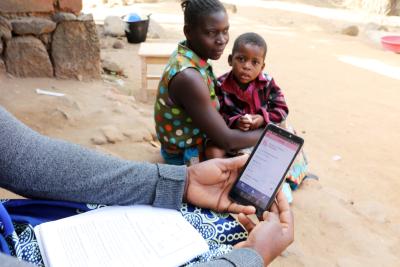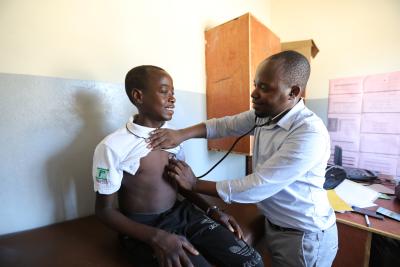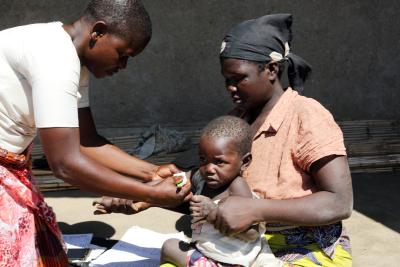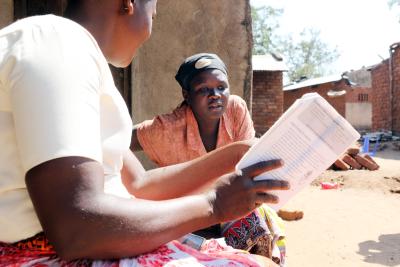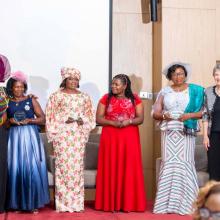Community Health Workers Household Model program
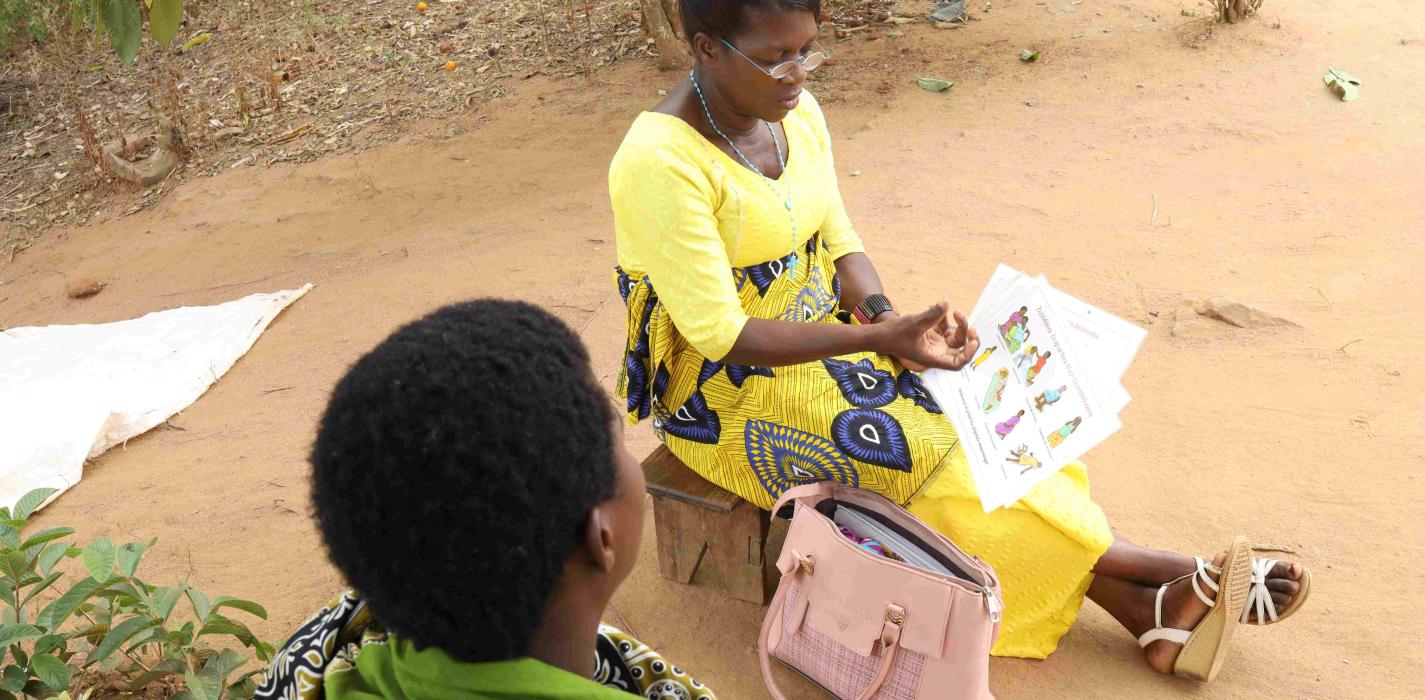
The Community Health Workers Household Model Program is a program run by Partners in Health that focuses on four key facets of health. The areas of focus are case finding, Linkage to care, providing ongoing support, and accompaniment of clients in care and health education.
Our Impact
The Community Health Workers Household Model has made significant contributions toward providing medical care for people living with various medical conditions. CHWs support Health Surveillance Assistants (HSAs) by serving 20-40 households within Neno.
-
6,021Tuberculosis
In 2023, Community Health Workers submitted 6,021 Tuberculosis samples.
-
20,863Linkage to Care
CHWs referred 20,863 people with various conditions to health facilities while registered 7,033 pregnant women in Neno District.
-
1230Health Education
Optimized prevention, health services uptake, and health management behaviors by capacity building within the household.
Community Health Workers Household Model program
The Community Health Workers Household Model program is a program run by Partners in Health that focuses on four key facets of health.
Case Finding
Community Health Worker Annie Jere visits with Milica Steven and her three children at their home in Neno, Malawi, screening the family for health
Thomas Patterson
Community health workers (CHWs) are deployed to enhance the timely case finding through education and screening for common, treatable conditions.
Linkage to Care
Kenwood Kumwenda, clinical officer, meets with patient Kerefasi Wiliyamu, a 14 year-old boy with diabetes. Kerefasi visited several (non-PIH) doctors in area before finally getting diabetes diagnosis at Lusingwi, and being referred to Advanced NCD.
Karin Schermbrucker
Through this program, the CHWs act as a bridge between people living with various medical conditions and medical facilities. The program provides linkage to care for Symptomatic clients along with those qualifying through routine screening
Ongoing Support and Accompaniment of Clients in Care
CHW Lucia Samanyada visits with Iditn Tepete and her four children, checking on their health in the rural village of Daelo, Malawi.
Thomas Patterson
As clients receive medical care, the CHWs program supports them by providing psychosocial support. The program also provides adherence support, and tracking of missed patient visits (NCDs, chronic care, Antenatal care, postnatal care) in support of other clinical programs.
Health Education
CHW Lucia Samanyada visits with Iditn Tepete and her four children, checking on their health in the rural village of Daelo, Malawi.
Thomas Patterson
The program builds the capacity of the people within the community on common health conditions and prevention and management of these conditions to optimize prevention, health services uptake, and health management behaviors in the household.
Since it was established in 2007, the CHW program has been using a patient-centered approach to provide care to people living with tuberculosis and HIV. Initially, each CHW was responsible for 5-8 clients. However, PIH Malawi expanded its reach beyond HIV care to other areas of healthcare.
In 2017, the CHW program was restructured to include household assignments, known as the “HH Model”. Under this model, CHWs now support government CHWs popularly known as Health Surveillance Assistants (HSAs) by serving 20-40 households. Within the households, CHWs focus on 8 health conditions including tuberculosis, HIV, sexually transmitted infections, non-communicable diseases, family planning, maternal and neonatal health, child health, and pediatric malnutrition.
The Program plays a vital role in facilitating social connectedness, building trust, decreasing stigma, and linking communities to essential healthcare and social support services. To do this, CHWs use home visits to interact with their assigned household. There are 5 different types of home visits that CHWs conduct and for each visit, there is a specific purpose and services that CHW provides these are:
- Monthly Home Visits:
Monitor & screen household members, provide health education & refer those needing care.
- Postnatal (PNC) Home Visits:
Day 3& 5 after delivery to monitor for danger signs for both the mother and the child and accompany them for medical attention.
- TB Patient Home Visit:
Daily for the duration of treatment to monitor adherence and side effects.
- HIV patient visit: Daily for the first year to monitor adherence, side effects, and danger signs and accompany them for management.
- Follow-up Visits: Within 2 days of referral to ensure linkage to care.
- TRACE: Within 1 week of receiving the report ensure that clients are brought back to care.
The program has been making significant contributions toward providing medical care for people living with various medical conditions. In 2023, Community Health Workers submitted 6,021 TB samples, referred 20,863 people to health facilities, and accompanied 5423 of them to the health facilities.
Similarly, the CHWs under the program were able to screen Pregnant women. The CHWs registered 7033 pregnant women in Neno and accompanied 1552 women to their first ANC visit to the health facilities.
Furthermore, one of our CHWs received the prestigious Heroine of Health award. This award was established by Women in Global Health (WGH) in 2017 as a significant platform to celebrate and amplify the outstanding contributions of women in the field. She was among the twelve recipients in Africa.
